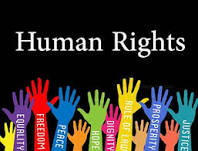By Albert Mwangeka
Farrah Ibrahim a 45 year old man from Wajir had gone to the police station to present himself after he obtained information that he was being ‘looked for’ so he went to record a statement because he feared for his life.
“His is a unique case reflecting some injustices in the justice system that leave many fearing for their lives.He was later arrested at Wajir Police Station when he had intentions of presenting himself. While at the station three other people who were looking for him showed up. Officers at the police station informed Farrah’s family that the three people looking for him were actually from the Directorate of Military Intelligence,” Human Rights Watch HRW Researcher from Kenya Otsieno Namwaya continues to narrate.
Namwaya explains that the family had given a green light for their kin to be interrogated and they opted to go for prayers and pick Farrah after worship.
“While praying their man was taken away by the 3 men. When they came back they wanted to know where their brother, their son was. Police informed the family that they had taken him to an Anti-Terror Police Unit ATPU office. ATPU people denied this. They said he was taken to a nearby military base. That was the last time the family saw their beloved Farrah,” Namwaya says.
A recent report by HRW indicates that , “Deaths and Disappearances: Abuses in Counterterrorism Operations in Nairobi and in Northeastern Kenya,” documents 34 instances in multi-agency security operations in which the military was actively involved in raiding homes and compounds to arrest people who were allegedly suspected of links with the armed Islamist group, Al-Shabaab.
The report links government security organs of being involved in 34 people disappearing and 11 found dead.
“Cases we have created are from the past 2 years. We focused on Garissa, Mandera and Wajir. Victims are mostly ethnic Somali Kenyans. There is a range of security agents involved including representatives of police units, Kenya Wildlife Services KWS, Intelligence Units, and the military,” said Kenneth Roth, Executive Director at HRW.
HRW, during their survey that took 8 months, found that those arbitrarily arrested during the security sweeps also included Imams and Islamic school teachers.
They were detained, at least initially, in military bases and makeshift military camps in forests in the northeast and other parts of the country.
In some cases, police officers arrested people, and then handed them over to the military.
According to the human rights organization on March 21, 2015, four military officers arrested Abdiwelli Ibrahim Sheikh, 28, at home, and witnesses saw military officers take him to Mandera military camp.
“He has not been seen again. The security officers said they wanted to ask him a few questions and then they would set him free,” said a 50-year-old man who was with Abdiwelli at the time of his arrest.
“We never knew he was being taken away for good,” said the witness who refused to his official names to be used during the interview.
A 48-year-old man told HRW that police arrested him in May 2015, held him for two days at Wajir police station then transferred him to Wajir military base. He said that military officers later arrested his elder brother and held them both at Wajir military base. The military officers kicked, slapped, and beat the man, and gave him electric shocks, then released him after 15 days. His brother’s whereabouts are unknown.
“Kenyans have the right to life and liberty. When counterproductive methods are used to combat terrorism like torture it infringes on human rights,” said Hassan Abdille, Executive Director Muslims for Human Rights, MUHURI.
Namwaya explained that it was devastating if a loved one disappeared and could not be traced.
“Citizens should be involved in public participation in matters security. Humane methods should be used when conquering terrorism,” Noted Namwaya.
“People in northeastern Kenya deserve protection from Al-Shabab attacks, not further abuse from the authorities Rounding people up and refusing to disclose their whereabouts is a serious crime and only compounds fears and mistrust in the security forces,” Said Roth.
Roth has advised the government to form a commission of inquiry to investigate the alleged extra judicial killings and disappearances.
Various security organs like the KWS distanced themselves and have since denied to the HRW to have been involved in such incidents.














